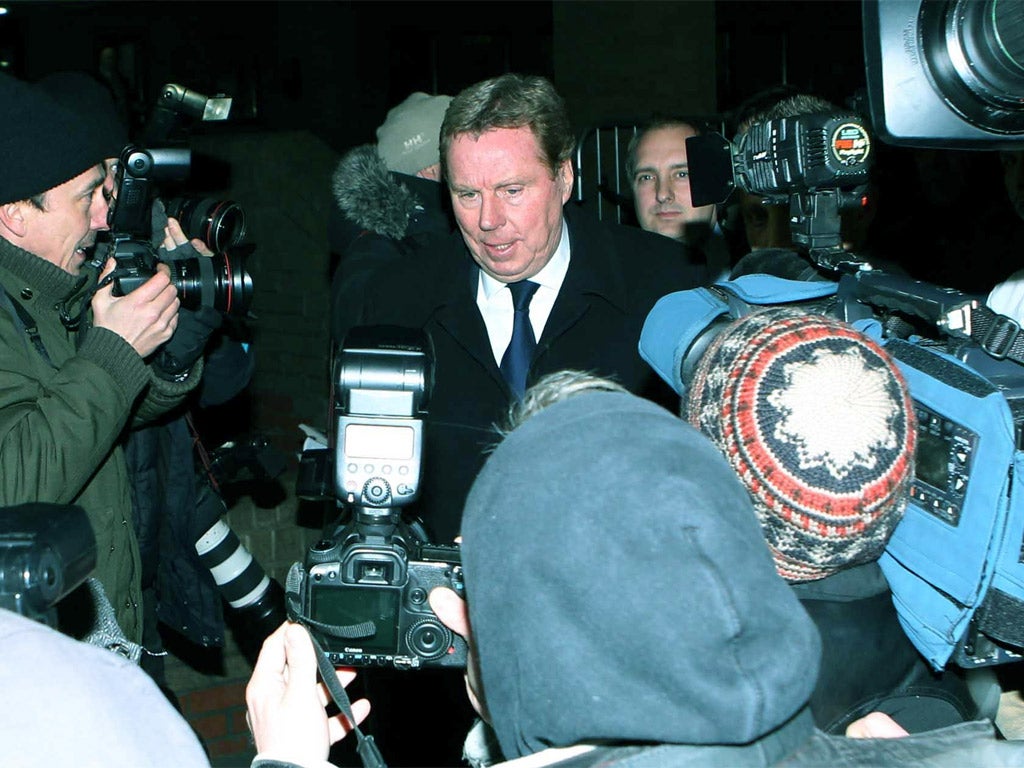James Lawton: It may be legal, but should managers earn sell-on fees?
Football is duty-bound to find a way to avoid these potential conflicts of interest that can be damaging to clubs

It is no part of the charge against Harry Redknapp that he had an arrangement with his former club Portsmouth granting him percentage payments on any transfer fees received for players he had signed and helped to develop to the point of profit.
Such deals between managers, and directors of football, and their clubs are commonplace in the English game, and not criminal in the slightest, of course. Despite this, a debate has been provoked by the revelation of the prosecution in the Redknapp case that he profited by nearly £200,000 from the £4.5m sale of Peter Crouch to Aston Villa in 2002.
But is this type of payment good for the game? The crux of the issue is a potential for conflict of interest. There is no suggestion that there was any potential conflict of interest in Redknapp accepting the payment which he and his club had agreed. However, the practice in general does open up the issue.
At what point might a manager, conscious of the uncertainties of a results-oriented business where pressure on the jobs of even the most distinguished operators has never been so great, be tempted to put his own interests before those of his club, and by extension, the fans who supply its lifeblood?
Rewards for managers bringing on players are unlikely to raise an eye-brow in the commercially pragmatic football culture. Any moves to impose tighter financial regulations on the Premier League have been firmly resisted down the years, a stance which some believe has hugely helped some member clubs in their pursuit of foreign investment.
It is a bit like the argument of the big bankers when attempts are made to corral the City of London. Everyone knows the one: we'll take our ball and play in somebody else's stadium.
One experienced football administrator said yesterday: "The system can be justified... a manager, who has no kind of job security, does a good job, makes the club a huge profit on an individual player, so why shouldn't he have his share? Like the bankers do when they improve the figures.
"The potential problem lies in the possibility of some managers and players maybe being tempted to collude over their short-term interests rather than the long-term ones of the club. Certainly, there is a compelling case for the system operated by some of the leading German sides, where the clubs belong to the community, with fans holding 51 per cent controlling interest, and the club executives are in effect running a franchise."
In American sport the idea of agent-driven transfers is unthinkable: all contracts are registered in a central league office and supervised by both lawyers and accountants. Agents can act only for their player and receive payment directly from the client after a contract has been vetted and approved.
There are some notable examples of managers earning their percentages while performing prodigiously on behalf of their clubs. Dario Gradi, the 70-year-old doyen of Crewe Alexandra, was hired to save the club from dropping out of the Football League. Now director of the club's academy, Gradi won four promotions for Crewe, took them to an all-time high of 11th in what is now the Championship, and over the years discovered six England internationals, who were sold on for a total of more than £25m.
Gradi's protégés include David Platt, Geoff Thomas, Danny Murphy, Seth Johnson, Robbie Savage and Dean Ashton. It has been a Pied Piper performance and a club official said yesterday: "There's never been any secret that a substantial part of Dario's income has come from his ability to generate great profits in the transfer market. Though he is no longer manager, he still has a percentage on the successful development of young players."
We can only speculate on the rewards that, under similar arrangements, might have accrued to such as Sir Alex Ferguson and Arsène Wenger over the years.
Ferguson regenerated the Old Trafford youth system which produced the generation of Giggs, Scholes and Beckham and, most spectacularly, signed Cristiano Ronaldo for £12m and sold him at £80m. Soon after he took over the club, United were almost sold for £13m and within a decade were worth nearly a billion. However, when he announced his decision to retire, the club's offer for his services as an iconic ambassador was considered less than overwhelming.
Wenger turned huge profits on Nicolas Anelka and Cesc Fabregas. How is such an achievement properly measured by a grateful – or not – club?
It is a question that has been brought to a fine edge this week by that first-day revelation in Southwark Crown Court. One certainty is that it is unlikely to be satisfactorily answered as long as English football clubs are largely allowed to make their own rules.
The day before Redknapp went to court, one newspaper reported that the value of his star player, Gareth Bale, who has developed hugely under the manager's care, had been set at £150m. It is a figure that is likely to ward off the interest of Real Madrid and Barcelona, suitors who, like the rest of the football world, have been astonished by the young Welshman's progress under the tutelage of his manager.
Certainly, it is a testament to the kind of work that distinguishes the most talented of the managers. What football may have to work out, though, is a more appropriate, and certainly less controversial, way of distributing the rewards.
Subscribe to Independent Premium to bookmark this article
Want to bookmark your favourite articles and stories to read or reference later? Start your Independent Premium subscription today.

Join our commenting forum
Join thought-provoking conversations, follow other Independent readers and see their replies